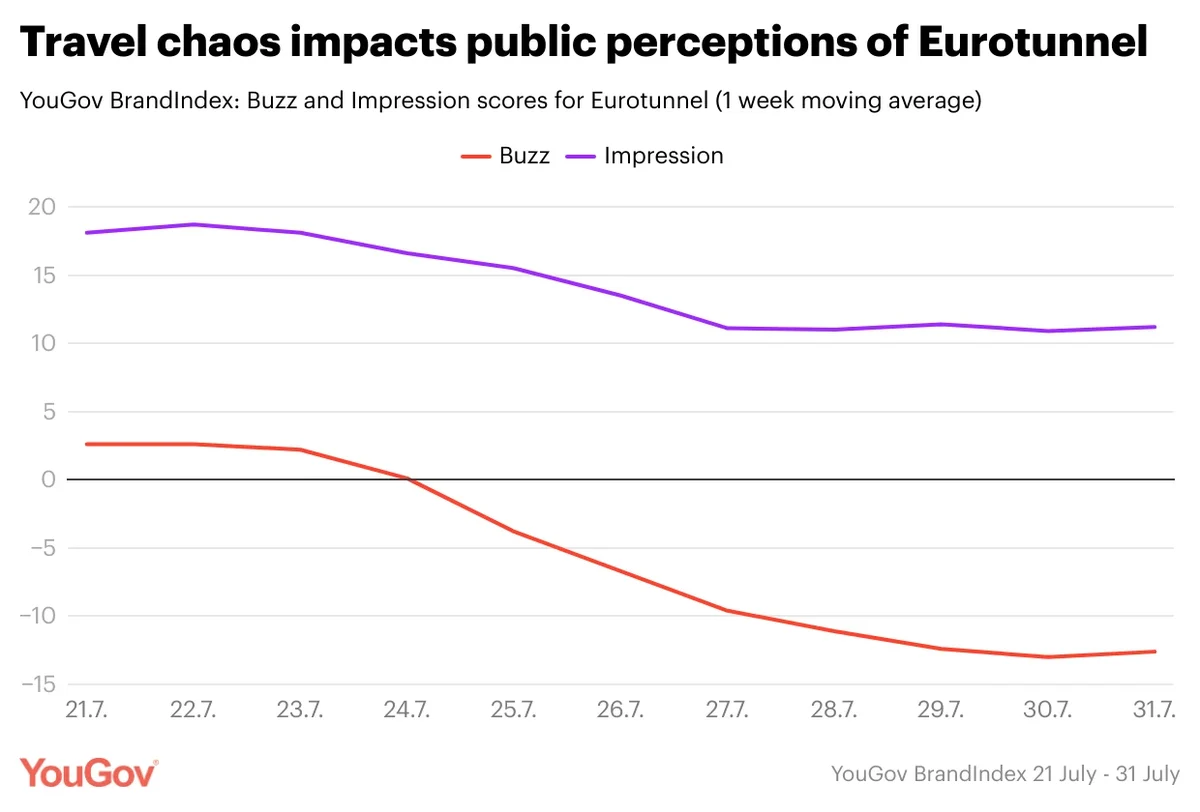
Holidaymakers affected by Folkestone travel chaos amid Eurotunnel blame game
On 22 July, media outlets reported “huge queues” in Folkestone caused by delayed holidaymakers looking to cross the Channel via Eurotunnel. French authorities have said that the travel chaos was caused by the additional checking and stamping of British passports required post-Brexit; the government has said it can be attributed to a number of factors.
Whatever the truth, the public are more poorly disposed towards Eurotunnel than they were before. Data from YouGov BrandIndex UK shows that Buzz scores, a measure of whether the public have recently heard anything positive or negative about a brand, plummeted from 2.2 to -12.6 (-14.8), while metrics tracking overall impressions of Eurotunnel fell from 18.1 to 11.2 (-6.9).
Recommendation scores saw a fall of 3.1 points (from 13.2 to 10.1), though metrics tracking intent to use remained stagnant, moving from 1.9 to 2.0. There isn’t, after all, another Channel Tunnel to use (even if ferries are an option for some), and YouGov Global Travel Profiles shows that, among UK holidaymakers going on holiday in 2022, some 45% said they preferred to use their own car when going on vacation.

The port of Dover and Folkestone’s Eurotunnel are also both reporting that traffic is now “flowing well” after the chaos on the M20. But will it continue to do so? Data from YouGov Global Travel Profiles shows that 20% of UK holidaymakers who had booked a holiday in 2022 organised to go away in August, with 17% saying they planned to go away in September. By comparison, 15% said they had booked for June, and another 15% for July.
Not all of these holidaymakers will use the Folkestone to Calais route (in fact, 76% said they were planning a domestic holiday compared to 60% who said they were heading abroad) or going to Europe at all – but if they are, they may well hope there continues to be light at the end of the Channel Tunnel.
This article originally appeared in City AM